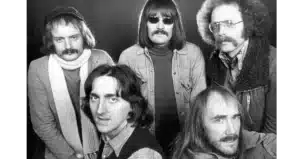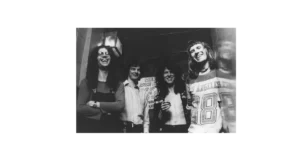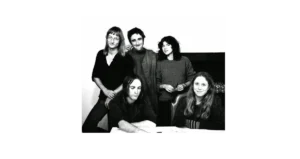The Wilde Flowers: The Forgotten Roots of the Canterbury Scene
Formation and Early History
The Wilde Flowers were formed in 1964 in Canterbury, England, and though they never released a full album during their brief active years, they are now recognized as the foundational seed of the Canterbury Scene — a movement that would later produce legendary progressive rock bands like Soft Machine, Caravan, and Hatfield and the North.
Founded by Hugh Hopper (bass) and his brother Brian Hopper (saxophone/guitar), the band also featured Robert Wyatt (drums/vocals), Kevin Ayers (vocals), and later Richard Sinclair and Pye Hastings, who would go on to form or join the most influential Canterbury bands.
The name “Wilde Flowers” was a tribute to poet Oscar Wilde and reflected the group’s early blend of beat music, jazz-inflected pop, and modest psychedelia, all of which laid the conceptual and musical groundwork for what would become progressive rock with a British twist.
Musical Style and Significance
Musically, The Wilde Flowers leaned on the sound of mid-’60s British rock, inspired by The Kinks, The Who, and The Yardbirds, but with a distinct sophistication that pointed toward jazz, avant-garde, and classical influences. Their songs were melodic, but subtly complex, often infused with unusual chord changes and lyrical wit — elements that would later define the Canterbury sound.
Though the band never secured a recording contract or released an official album during their original run (1964–1969), they recorded numerous demo tracks that were later compiled and released in archival form.
Posthumous Recognition
In 1994, Voiceprint Records released The Wilde Flowers — a compilation album featuring demos and rehearsal recordings from 1964 to 1969. This long-overdue collection captured the band’s historical importance and gave listeners a chance to hear the nascent voices of figures who would soon revolutionize progressive music.
This release includes early versions of musical ideas and songs that would reappear in later forms by Soft Machine and Caravan. For fans of the Canterbury Scene, it’s a fascinating glimpse into the pre-history of a movement.
Notable Members and Legacy
The Wilde Flowers served as a launchpad for some of the most important figures in British progressive rock:
Robert Wyatt – Later co-founder of Soft Machine, solo artist
Kevin Ayers – Co-founder of Soft Machine, prolific solo career
Hugh Hopper – Bassist for Soft Machine
Richard Sinclair – Founding member of Caravan and Hatfield and the North
Pye Hastings – Vocalist/guitarist for Caravan
Brian Hopper – Collaborated with both Soft Machine and Caravan
Their musical legacy is not in widespread hits or iconic albums, but in the musicians they spawned and the sound they helped shape. Without The Wilde Flowers, the Canterbury Scene — with its unique fusion of jazz, rock, surrealism, and English whimsy — might never have emerged in the form we know today.
Interesting Facts
The Wilde Flowers were never commercially successful in their own time, but are now regarded as a mythic origin point in progressive rock lore.
Their recordings were home demos and rehearsals, many made on primitive equipment, yet they contain raw brilliance and originality.
They serve as a rare case where a band’s influence is measured not by their output, but by the output of their alumni.
The band’s story highlights the tight-knit, cross-pollinated nature of the Canterbury music scene — where musicians often shifted among groups and projects.




